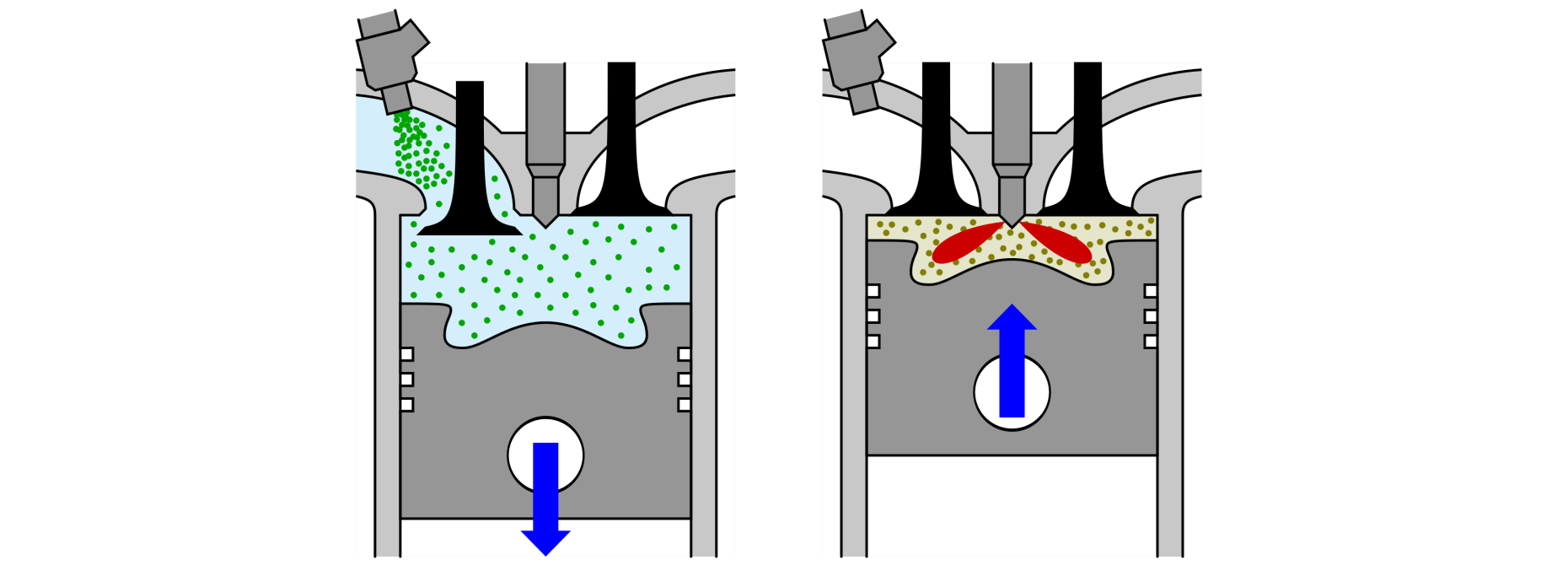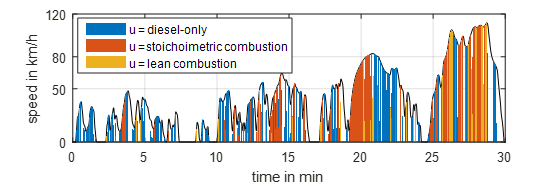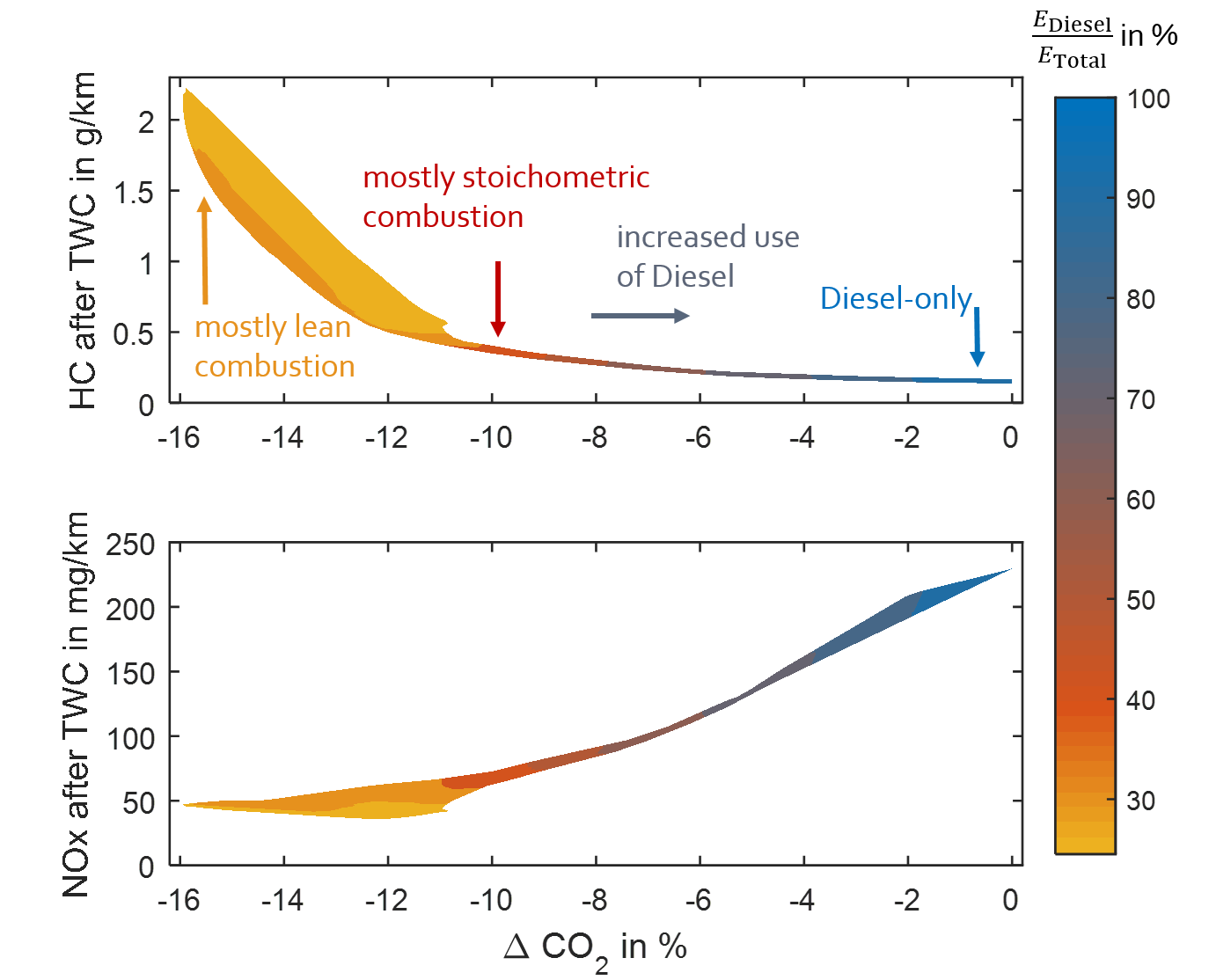NextICE
Alternative fuels such as fossil natural gas or synthetic methane have the potential to lower CO2 emission of passenger cars. The conversion of such fuels into mechanical energy, however, requires the further development of internal combustion engines. The Institute for Dynamic Systems and Control (IDSC) investigates the question of how to utilize the full potential of engines operated with alternative fuels. In particular there exists a trade-off between low pollutant formation and energy efficiency CO2 emissions, which has to be carefully adjusted in order to achieve best possible results.
The project "NextICE", which is a collaboration of the the IDSC, the Laboratory for Aerothermochemistry and Combustion Systems (LAV) and the Swiss Federal Laboratories for Materials Science and Technology (Empa) is sponsored by the Swiss Federal Office for Energy (BFE).
Diesel-ignited gas engine
The low CO2 abatement cost of methane, favored on one hand by the high hydrogen-to-carbon ratio and on the other by the high knock resistance, makes methane gas one of the most promising alternative energy carriers for the use in passenger cars. Among all gas engines, the diesel-ignited gas engine is a unique concept. A short Diesel injection provides ignition centers for the premixed methane gas. The diesel-ignited gas engine features substantially enhanced ignition boundaries in contrast to spark-ignited gas engines. Therefore, this engine concept allows for a number of different combustion modes, such as for example the stoichiometric, diluted andor lean combustion modes. The downside of this concept is that a methane combustion requires a high temperature, and consequently, flame quenching may occur. Flame quenching, in turn, may lead to a large amount of unburnt hydrocarbon emissions, which then need to be oxidized in a three-way catalyst. The methane conversion efficiency of the three-way catalyst, however, is strongly depending on the catalyst temperature. Since the catalyst is heated solely by the exhaust gas, the combustion mode of the engine can influence the conversion efficiency substantially. In order to reach lowest possible tailpipe emissions, the catalyst thermal management is an essential determinant for choosing between the different combustion modes.

Optimal Engine Control
The diesel-ignited gas engine can be operated using several combustion modes: diesel-only, stoichiometric or lean combustion. Every mode features some distinct advantages and drawbacks regarding CO2 and pollutant emissions, and therefore the optimal combination of operating modes to be employed over a regulatory driving cycle remains unclear. In order to evaluate all possible optimal operating strategies an optimal control problem has been formulated. The performance index has been chosen as a weighted sum of total amount of each of the three emission species at the end of the driving cycle.

The two emission factors Alpha and Beta represent the user’s preference. The combustion modes have been characterized empirically using engine-in-the-loop experiments at the IDSC. The steady-state response of the engine serves as a system model while the three-way catalyst conversion efficiency has been modeled dynamically.

Results
The optimal control problem is solved for a variety of weighting factors. Based on the simulated cumulative emissions on the WLTC the following conclusions can be drawn:
- Switching from diesel-only to natural gas yields up to -16% CO2 and -77% NOx
- CO2 benefit of lean combustion is counteracted by the low conversion efficiency of the exhaust aftertreatment system

Hutter, R.; Zurbriggen, F.; Onder, C. Diesel Minimal Combustion Control with Constraints in a Diesel-Ignited Gas Engine, FISITA automotive conference 2016, FISITA, 2016, 10
Barro, C.; Hutter, R.; Möri, F. Boulouchos, K; Burger, J. Analysis of PM and PN in dual Fuel Engine, Fuelled with Natural Gas and OME, 20th ETH Conference on Combustion Generated Nanoparticles 2016, Zurich, Switzerland
Hutter, R.; Elbert, P.; Onder, C. Poster NextICE, 2016, SCCER Mobility Annual Conference 2016, Zurich, Switzerland
Zurbriggen, F.; Hutter, R.; Onder, C. Diesel-Minimal Combustion Control of a Natural Gas-Diesel Engine. Energies 2016, 9, 58.